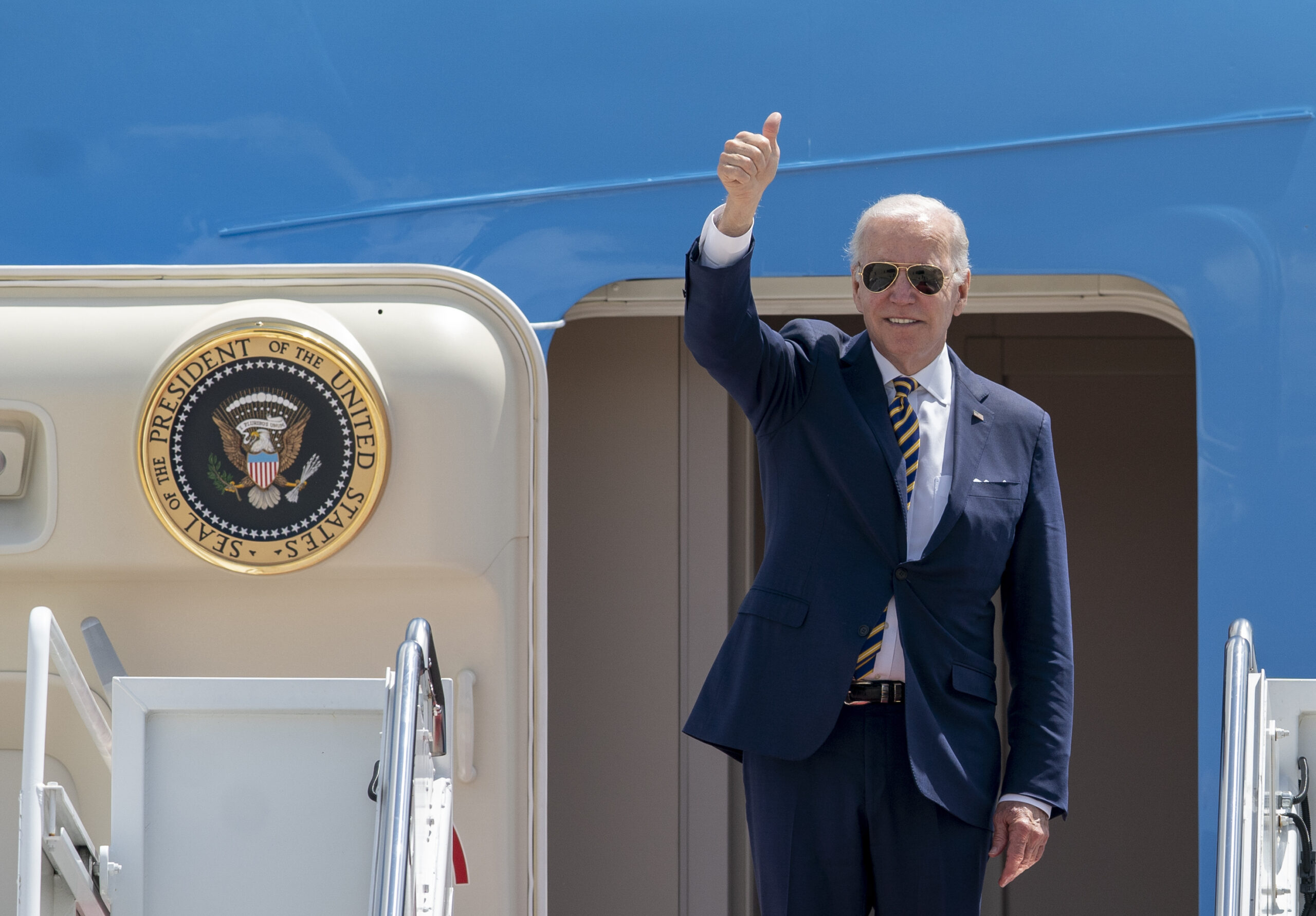Despite the fact that international attention is directed towards the war in Ukraine, the United States seems to be clear that the future passes through the region that represents 60% of the world economy and is home to more than half of the population of the planet. Washington’s priority strategy focuses on weaving a network of alliances in the Indo-Pacific.
If last week President Joe Biden received the leaders of the nations of Southeast Asia at home, this Friday it was the American who crossed the pond to lead a four-day tour of South Korea and Japan. It is Biden’s first trip to Asia as US president.
On the table will be technological, cybersecurity agreements and a new economic association sponsored by Biden, called the Indo-Pacific Economic Framework, which will try to facilitate cooperation in trade and infrastructure between the US and Asian countries. Biden will also address growing concerns about North Korea’s nuclear program with his counterparts and test the waters to see if he can truly forge a united front of major democracies that can serve as a counterweight to his great rival’s regional ambitions. , China.
Biden’s first stop is Seoul. The new president, the conservative Yoon Suk-yeol, who took office last week after winning the presidential elections on March 10, awaits him there this Saturday. During his campaign, Yoon, a former prosecutor with no political experience, promised closer alliance with the United States to deal with North Korea’s nuclear and missile threats. Both Seoul and Washington have been warning all week that Kim Jong-un’s regime is preparing a nuclear test or ready to launch an intercontinental ballistic missile (ICBM) as a welcome warning to the US president.
Despite the promise of the Biden administration to resume denuclearization talks with North Korea, stalled since the failed summits between Kim Jong-un and Donald Trump, no progress has been made since the Democrat arrived at the White House in early 2021. More active have been in Pyongyang, which decided to put pressure on Washington by resuming tests with its largest missiles. So far this year, the North Korean regime has carried out a record 16 missile launches and could at any moment begin its first nuclear bomb tests since 2017.
Yoon’s arrival in Seoul also marks a break with former president Moon Jae-in’s commitment to building ties with the secretive neighbor. South Korea’s new chief executive has suggested deploying US tactical nuclear weapons and even a “preemptive strike” should North Korea’s nuclear and missile strikes appear imminent.
Yoon also promised a tougher line with China, siding with the US in the competition for economic and military supremacy in Asia between the two world superpowers, and risking the relationship with its biggest trading partner. But South Korean analysts assure that the first actions of the new president have been more in line with balancing the alliance with the US and its commercial dependence on China, going back on his electoral promise to deploy the US THAAD anti-missile defense systems, which has already provoked in past costly sanctions by Beijing.
Following the meetings in Seoul, Biden will travel to Tokyo to meet his most powerful ally in the region, Japanese Prime Minister Fumio Kishida. His arrival coincides with an unprecedented military reinforcement of the world’s third largest economy. Peaceful Japan is changing its defense policy by increasing military spending next fiscal year and buying fighter jets from Britain, marking the first time in 70 years that Tokyo has signed a major defense project with a country other than Japan. USA.
The Japanese capital will also host a meeting between the members of the Quad, the alliance between the US, Japan, Australia and India whose priority is to stop China’s expansion in the Indo-Pacific region. Australia holds a close presidential election on Saturday and the winner is expected at the Tokyo meeting, as is Indian Prime Minister Nerendra Modi, who has distanced himself in recent months from the allied democracies due to his country’s position after the Russian invasion of Ukraine.
India has been juggling for three months not to condemn Moscow’s attack, walking the equidistant line of not giving up its millionaire agreements with Putin, but it does not want to anger its traditional partner in Washington either. One wrong move would jeopardize her role within the Quad.
Conforms to The Trust Project criteria
















